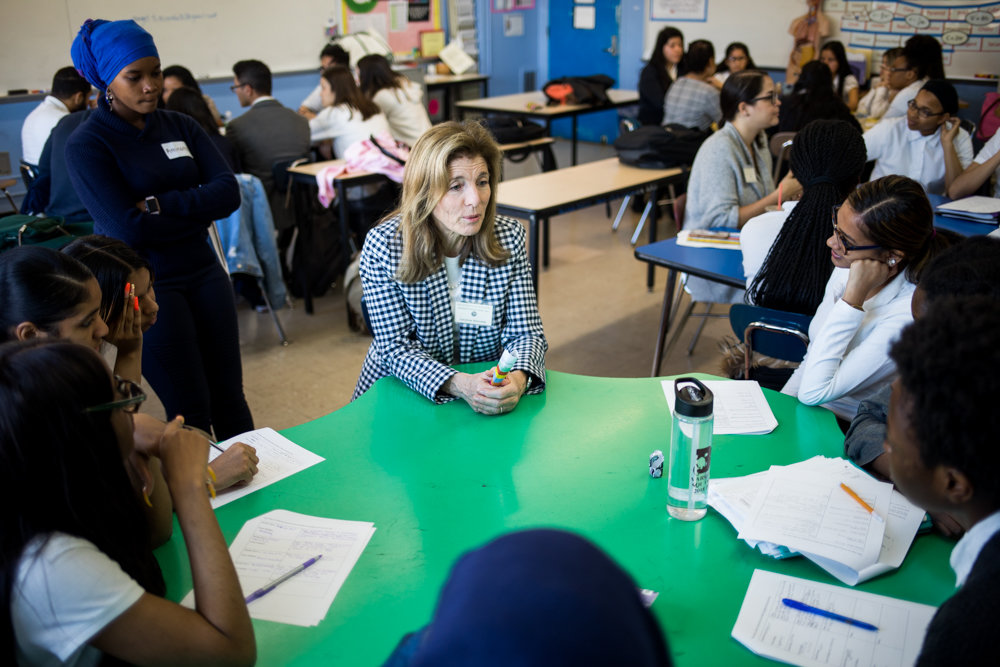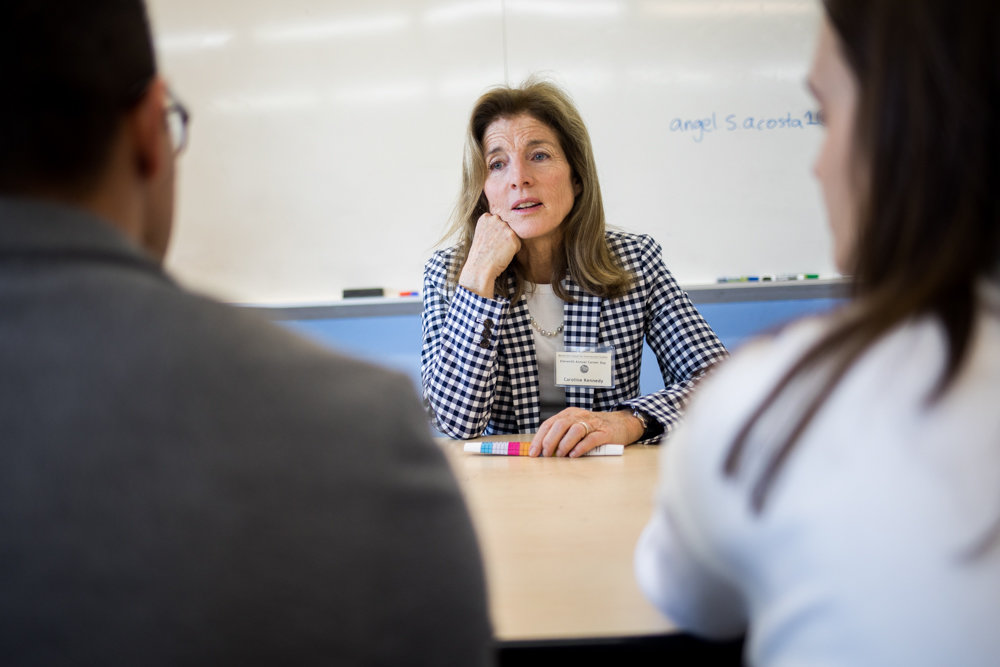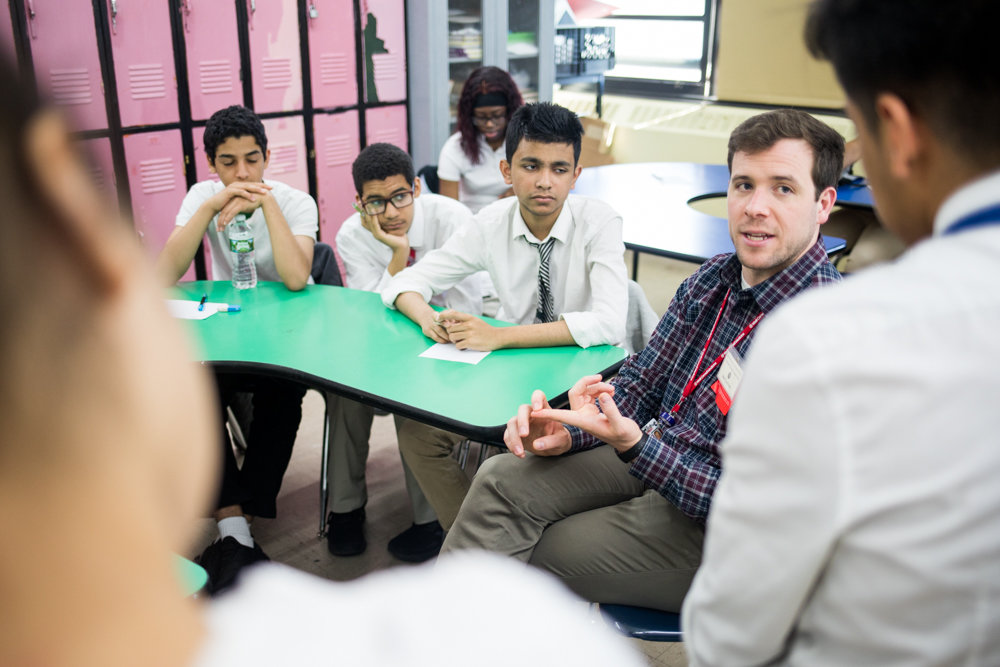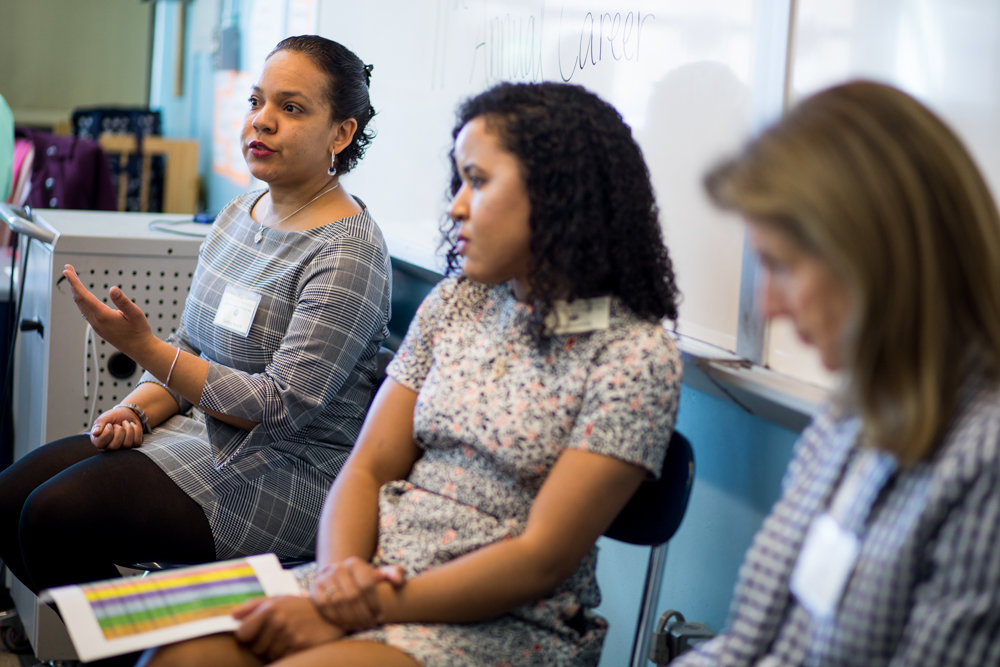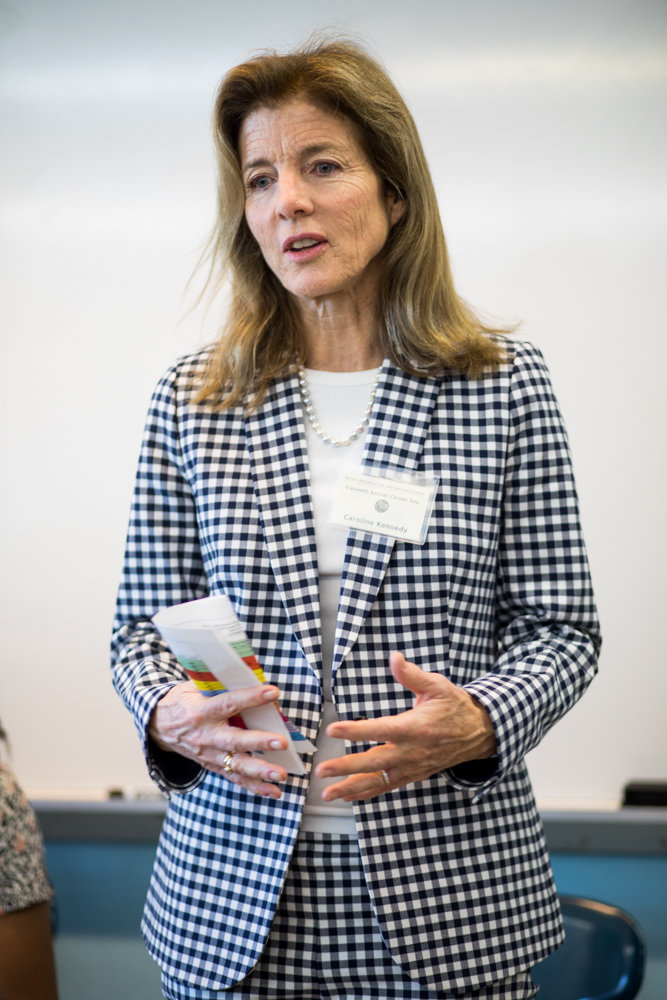Caroline Kennedy tells high schoolers there’s no single path to career success
Fareeda Yahya sat across from Caroline Kennedy, one of about 50 professionals gathered at her school for its career day. There were so many things the 18-year-old could ask the daughter of President John F. Kennedy, who also once served as the U.S. ambassador to Japan.
But there was just one question on Fareeda’s mind: “When you were a little girl, did you really know what you wanted to do?”
Those are the kinds of questions all the visiting professionals expected at the Marble Hill School for International Studies career day, a time when each of them could speak to classes about their education, what inspired them to try their particular career, and what the work is truly like. Each speaker held a diverse position in a number of fields including medicine, government, technology, the military, higher education, entertainment and finance.
What Caroline Kennedy wanted to do changed several times, she told Fareeda, even as an adult. She studied law, wrote several books, served the government overseas, and spent time as a mom.
The best skill she learned for planning for the future? Be adaptable.
“Just when you think you have everything figured out,” Kennedy said, “it can change.”
Choosing what to do with one’s life can be a daunting prospect for a high school student. College and a career are just a few short years away, and planning what happens after graduation cannot wait.
“I started career day knowing it’s important for students to see a wide range of careers, and that most people didn’t get to their career by following a straight line,” Marble Hill principal Kirsten Larson said. “There are many different lines and pathways to doing something you love.”
Without some exploration, it’s impossible to know which fields an individual’s talents and skills will be most useful and where personalities will thrive. Talking to one or several people who already have been through the process is an invaluable first step.
“I think that it’s helpful when you’re in high school to see the connection between where you are and where you want to go,” Kennedy told The Riverdale Press. “It’s helpful to have someone to help you put those steps together for you and show you the path forward.”
There are a tremendous number of occupations — enough to suit all manner of tastes and abilities, said Dana Malajain, a dermatology resident at Columbia Presbyterian Hospital.
“There are some professions that you might not come across in your day-to-day life that you’d never know existed as a potential job,” Malajain said. “I think an important step in choosing your career is to know what’s out there.”
Growing up in a small town, product manager and novelist Becky Allen didn’t know what kinds of jobs existed, let alone how to qualify for them.
“I saw what my parents did and what my teachers did, and beyond that, I guess people could work at stores, but that was about it,” Allen said. “You have no idea what sorts of jobs are out there if you don’t ask questions.”
If a student already knows the field they’re aiming for, learning about a job’s day-to-day tasks can help fine-tune their goals.
“If I was in a high school student’s shoes, I would probably want to hear something about a job I was interested in, as little or as big as it might be,” New York human resources information technology director Jelani Varmah said.
Students launched into a flurry of questions, asking guests if their parents chose their career path or if there were parts of their jobs they disliked. They wondered if internships boosted their job prospects, and if their jobs allowed personal time to raise a family.
“You all went to college and you all ended up in careers that you all enjoy,” Fatouma Camara told a panel of career day guests.
“But how easy was the process to go from college to the jobs that you pursued?”
Darling Rosado’s response was blunt but honest.
“It’s not an easy path,” the immigration attorney said, “because even though you go to college, when you first start your career, there’s a lot you have to learn.”
College prepares the student, but life is the ultimate teacher, Rosado said. Soft skills like time management, communication and work ethic are as important as the technical skills learned in class.
“I think a couple of years out of college is really hard because you’ve been in school, you know what you need to do to do well, and suddenly you have a lot of closed doors ahead of you,” Kennedy said.
After a couple years doing what they prepared for in college, they may find their professional calling is elsewhere. Some people work in completely different fields from what they studied in college, Larson said. Others change careers several times.
“And there’s nothing wrong with that,” Larson said. “We really want the students to see the broader spectrum of what it means to have a career over a lifetime that may encompass several different jobs using a variety of skills.
“It’s truthfully a rewarding process that way.”

